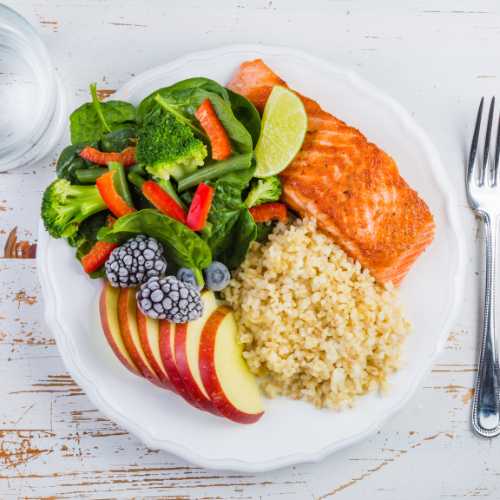
Inflammation is a natural and essential process that your body uses to defend itself from infections and heal injured cells and tissues. It can be a good thing. But, sometimes it’s possible to have too much of a good thing and that is what we call chronic inflammation.
Chronic inflammation is a slow-burning and smoldering type of fire. This type of inflammation can exist throughout your whole body and that means that the symptoms aren’t localized to one particular area that needs it.
Chronic inflammation is often invisible without immediate or serious symptoms, but over the long-term it’s been linked to many chronic diseases such as:
It may start acutely—from an infection or injury—and then instead of shutting off, it becomes persistent. Chronic low-grade inflammation can also occur with exposure to chemicals (e.g., tobacco) or radiation, consuming an unhealthy diet or too much alcohol, not being very physically active, feeling stressed or socially isolated, and excess body fat stores.
Let’s break down what we can do to put out those slow-burning, smoldering fires with foods that fight inflammation.
Below you will find several lifestyle changes—including a healthy diet—that can be very helpful to prevent and scale down inflammation to reduce its many damaging effects on the body.
Chronic, long-term, low-level inflammation is linked with many health issues. The first approach to preventing and improving this is through food and lifestyle changes. Start by focusing on adding colorful fruits and vegetables, whole grains, nuts, seeds, and fish to your diet. Then layer in lifestyle upgrades like physical activity, restful sleep, and stress management.
These changes can be integrated into your day-to-day practices. First try adding one additional fruit or vegetable to your day. Then, several times a day at each snack or meal. For inspiration, try recipes from my Anti-inflammatory Meal Plan.
If you’d like help with creating and implementing a sustainable meal plan with foods that fight inflammation, book a discovery call with me today to see how my programs can help you get started. Contact Me
Harvard Health. (2018, November 7). Foods that fight inflammation.
Harvard Magazine. (2019 May-June). Could inflammation be the cause of myriad chronic conditions?
Harvard Health. (2020, April). Understanding acute and chronic inflammation and Quick-start guide to an anti-inflammation diet
Harvard Health. (2020, June). All about inflammation.
Mayo Clinic. (2017, November 21). C-reactive protein test.
Mayo Clinic. (2018, May 25). Home remedies: How a healthy diet can help manage pain.
Mayo Clinic. (2019, August 13). How to use food to help your body fight inflammation.
Medscape. (n.d.). Inflammation, Cardiovascular Disease, and Cancer.
National Institute of Environmental Health Sciences. (2020, April 4). Inflammation.
Neuroscience News. (2020, March 5). Social isolation could cause physical inflammation.
University of California Berkeley News. (2020, June 4). Fitful nightly sleep linked to chronic inflammation, hardened arteries.
University of Wisconsin-Madison School of Medicine and Public Health. (2018). The anti-inflammatory lifestyle.
Subscribe to our newsletter FREEBIE: “10 Things You Can Do Every Day to Achieve Optimal Health”